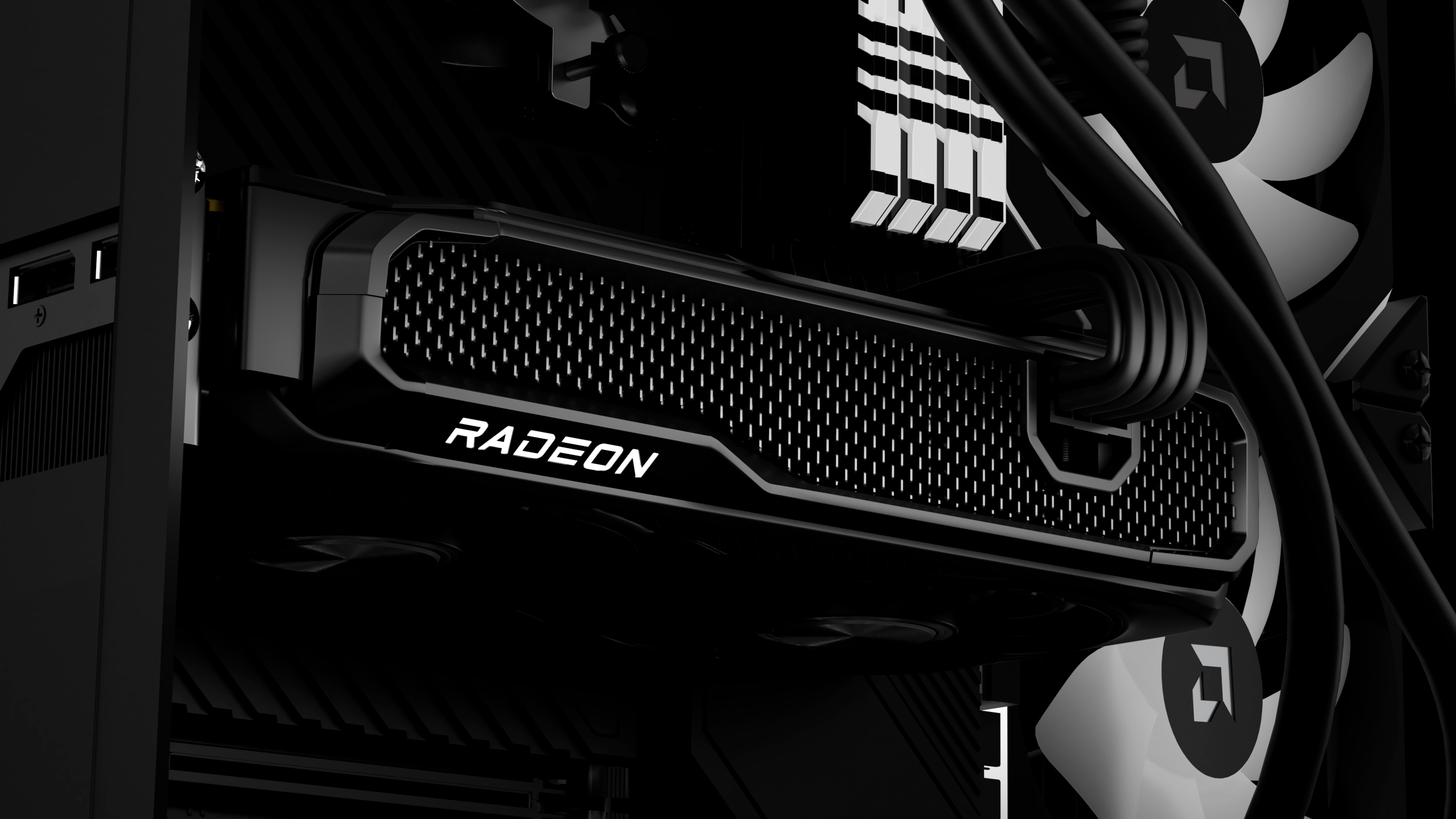AMD Radeon RX 9060 XT is up to 31% faster than 7600 XT in early compute benchmarks
Synthetic tests don't provide the full scope.

AMD's recently announced mid-range RX 9060 XT 16GB has been put to the test in Geekbench across Vulkan and OpenCL, where it allegedly leads its predecessor by up to 30%. This test was likely and inadvertently made public by a reviewer, consistent with previous product launches. We strongly advise viewing these tests with skepticism, firstly due to their preliminary nature and secondly because synthetic benchmarks only provide a partial glimpse of a GPU's real-world capabilities.
After weeks of rumors and leaks, AMD finally lifted the veil off its budget RX 9060 XT GPUs at Computex last week. The RX 9060 XT family comes in 8GB ($299) and 16GB ($349) flavors, both using the same 200mm^2 Navi 48 GPU core with 32 Compute Units or 2,048 Stream Processors. AMD has transitioned to a PCIe 5.0 x16 (64 GB/s) interface for these GPUs, as opposed to the PCIe 4.0 x8 (16 GB/s) on last-generation RX 7600 XT cards. Likewise, the RX 9060 XT features a 3.13 GHz boost clock speed, extendable via manual or factory overclocking, along with a 150W/160W Total Board Power (TBP).
The test-bench for these benchmarks featured an AMD Ryzen 7 9800X3D and 32GB of DDR5 memory atop the Gigabyte X870E Auros Master, and the RX 9060 XT 16GB. We've compiled publicly available test results for various relevant GPUs in Vulkan and OpenCL using Geekbench's repository. The RX 9060 XT managed to score 109,315 points and 124,251 points in OpenCL and Vulkan, respectively. This marks a solid 31.21% improvement over its last-generation counterpart, the RX 7600 XT, in Vulkan.
GPU | OpenCL Score | Vulkan Score | OpenCL (RX 9060 XT Baseline) | Vulkan (RX 9060 XT Baseline) |
|---|---|---|---|---|
RX 9070 XT | 158,990 | 181,320 | 145.44% | 145.93% |
RX 9070 | 134,163 | 164,347 | 122.73% | 132.27% |
RX 9060 XT | 109,315 | 124,251 | 100.00% | 100.00% |
RX 7600 XT | 83,313 | 99,223 | 76.21% | 79.86% |
RTX 5060 | 123,883 | 118,229 | 113.33% | 95.15% |
RTX 5060 Ti | 138,869 | 133,861 | 127.04% | 107.73% |
As expected, it falls short of its RX 9070 counterparts: 31.24% slower than the RX 9070 XT and as much as 24.4% slower than the RX 9070. Direct comparisons in synthetic tests between Nvidia and AMD are generally unreliable due to driver, optimization, and architectural differences. But for the sake of argument, the RX 9060 XT trails the RTX 5060 by 11% in OpenCL, while establishing a 5% lead in Vulkan. As expected, this anomaly stems from the inherent design differences between the two GPUs, and we'll only get a clear picture once independent reviews go live.
Synthetics might not push VRAM to its limits, but real-world gaming performance often relies on it. This is evident with the RTX 5060 Ti 8GB, struggling to keep up with its 16GB counterpart in VRAM-bound titles, even at 1080p. While AMD asserts the RX 9060 XT 8GB is designed for the majority of gamers, engaged in esports at 1080p, critics are still questioning the firm's rationale behind this model.
Follow Tom's Hardware on Google News to get our up-to-date news, analysis, and reviews in your feeds. Make sure to click the Follow button.
Get Tom's Hardware's best news and in-depth reviews, straight to your inbox.

Hassam Nasir is a die-hard hardware enthusiast with years of experience as a tech editor and writer, focusing on detailed CPU comparisons and general hardware news. When he’s not working, you’ll find him bending tubes for his ever-evolving custom water-loop gaming rig or benchmarking the latest CPUs and GPUs just for fun.
-
usertests Early synthetics may not mean much, but I think we'll see the 9060 XT 16GB fall behind the 7700 XT and 5060 Ti 16GB.Reply
Navi 44 has a 10% larger die size than GB206 on a similar TSMC 4nm node, but it uses cheaper GDDR6 memory. At MSRPs, it will win on perf/$. -
DS426 "While AMD asserts the RX 9060 XT 8GB is designed for the majority of gamers, engaged in esports at 1080p, critics are still questioning the firm's rationale behind this model."Reply
8 GB gaming GPU's can exist and indeed are fine for a majority of gamers -- it's pricing that's the problem, not if they should exist or not. IMO, $300 *street pricing* is the absolute max that's acceptable for a new 8 GB gaming GPU. If this holds close to MSRP and slots between 5060 and 5060 Ti with 5060 8 GB street pricing going for $360-$400 in the U.S., this card DOES make sense for the "majority of gamers" umbrella phrase, including most eSports players.
However, it'd be really nice if next gen starts the $300 GPU class at 12 GB or more as a raising tide lifts all boats in PC gaming, but we've had this conversation plenty of times... ('nuf said). -
tennis2 Ehhhh, the 7700XT was closer to the intended Nvidia-equivalent being the RTX4060Ti at the time (since their new naming scheme would match the 9060XT to the 4060Ti/5060Ti)Reply
Considering the 7700XT was almost 40% faster than the 7600XT makes this headline much less impressive. -
Notton I doubt the 9060XT 16GB will beat a 5060Ti 16GB, but it is "cheaper" than the 5060Ti 8GB model.Reply
Street pricing notwithstanding
Question I have is... will it handily beat a B580? It's looking like the 5060 can't manage that either.
9060XT 8GB: "$300"
9060XT 16GB: "$350"
5060: "$300"
5060Ti 8GB: "$380"
5060Ti 16GB: "$430"
B580 12GB: "$250" -
usertests Reply
The 9070 XT is a little slower than the 7900 XTX in Tom's testing, and the 7900 XTX has 50% more CUs, bandwidth, and Infinity Cache.ak47jar3d said:9070 also didn't do to well in synthetics. 9060 xt should be faster than 7700 xt.
The 7700 XT has 68.75% more CUs (54 vs. 32), 35% more bandwidth, and 50% more Infinity Cache (48 MiB vs. 32 MiB). If the 9060 XT 16GB can overcome that, it will be legendary. I think it will fall short... in rasterization. Just too many CUs in the 7700 XT. But ray tracing performance will be higher, you get 16 GB instead of 12 GB, and there's FSR4 support guaranteed.
The 9060 XT will be a good card that can live a long life with 16 GB, but it is pretty small, at 32 CUs again. Most of the good feelings towards it are going to be for undercutting the price of even the 5060 Ti 8GB. And that's only if there is enough supply to maintain the MSRP. -
ak47jar3d Reply
By that logic the 9070 xt should be been beaten pretty bad by AMD own 7900 xt. You can only really compare 9600 xt to card its AMD new RDNA four architecture cards. Its half the size of the 9070 XT while retaining the same clock speed. I would expect a reduction in performance of about 30-35 percent making pretty close or slight better than the 7700 xt.usertests said:The 9070 XT is a little slower than the 7900 XTX in Tom's testing, and the 7900 XTX has 50% more CUs, bandwidth, and Infinity Cache.
The 7700 XT has 68.75% more CUs (54 vs. 32), 35% more bandwidth, and 50% more Infinity Cache (48 MiB vs. 32 MiB). If the 9060 XT 16GB can overcome that, it will be legendary. I think it will fall short... in rasterization. Just too many CUs in the 7700 XT. But ray tracing performance will be higher, you get 16 GB instead of 12 GB, and there's FSR4 support guaranteed.
The 9060 XT will be a good card that can live a long life with 16 GB, but it is pretty small, at 32 CUs again. Most of the good feelings towards it are going to be for undercutting the price of even the 5060 Ti 8GB. And that's only if there is enough supply to maintain the MSRP.